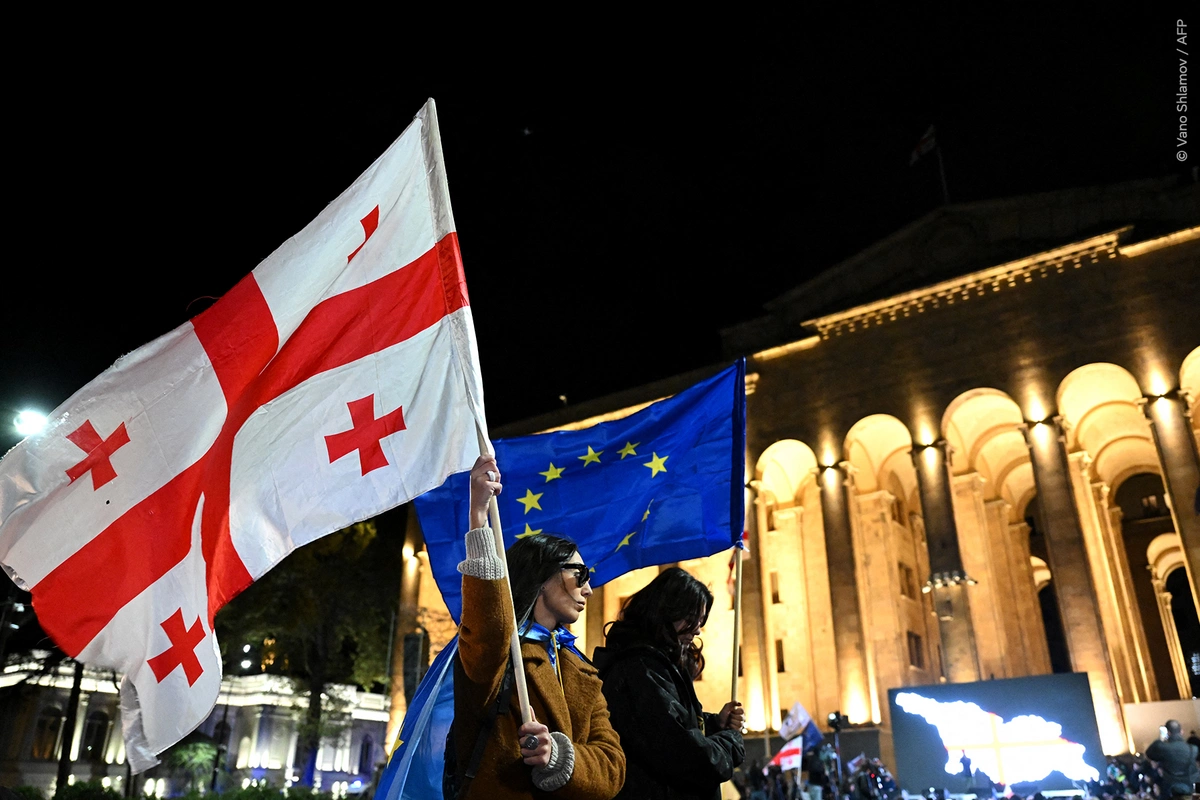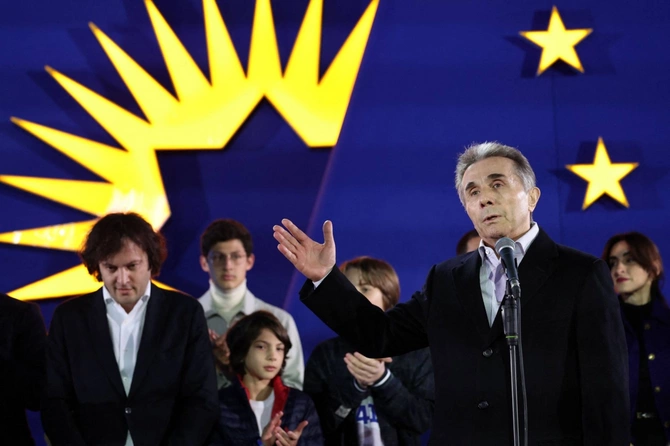
© Vano SHLAMOV / AFP
The recent political turmoil in Georgia has reignited debates about the country’s future, its alignment with Europe, and the broader geopolitical game being played in the region. On the surface, the protests and opposition movements appear to champion democratic ideals and European values. However, a closer examination reveals that the situation is far more complex, intertwined with external pressures and strategic interests. As an outside observer, I see this as less about democracy and more about global powers vying for influence over Georgia-a critical point of contention in the ongoing tug-of-war between East and West.
Georgia is no stranger to political upheaval, but the current confrontation stands out due to its strong international dimension. The opposition and protest movements in the country receive active support from European backers, who frame these actions as a fight for democracy. For some, this narrative is compelling: a country striving to establish democratic governance and align itself with European values. But this explanation only scratches the surface. In reality, Georgia has become a chessboard where external players seek to solidify their geopolitical stakes.
Those who support the protests often portray themselves as defenders of democracy, but their actions suggest a more strategic agenda. The ultimate goal appears to be establishing a government that is more susceptible to external influence, particularly in matters concerning relations with Russia. For Western powers, Georgia represents a critical component in their broader effort to weaken Russian influence in the region. This approach, however, often sidelines the genuine interests and needs of the Georgian people.
The outcome of this struggle is difficult to predict, but the broader geopolitical landscape plays a decisive role. Many analysts link Georgia's future to the results of the upcoming U.S. presidential election. If Donald Trump returns to power and extends his support to the ruling Georgian Dream party, it could stabilize the political situation and bolster the party’s position. Conversely, a neutral or oppositional stance from the U.S. could lead to further uncertainty. While Georgian Dream maintains control over key institutions, the dynamics could shift dramatically depending on international developments.

Georgian oligarch and founder of the ruling Georgian Dream party Bidzina Ivanishvili gives a speech Tbilisi/AFP-JIJI
One cannot overlook the divisions within Georgian society itself. While the opposition emphasizes European integration, many citizens remain skeptical about the feasibility of EU membership in the near future. The prospect of joining the European Union by 2030, frequently touted by opposition leaders, seems unrealistic. Such promises often feel more like propaganda than actionable plans. This rhetoric is reminiscent of the earlier push for NATO membership, which dominated discussions between 2007 and 2017 but has since faded from the political agenda.
Another critical aspect is Georgia’s relationship with Russia. Normalizing ties with Moscow would require significant concessions from Russia, such as resolving border issues with Abkhazia and South Ossetia and removing barriers that restrict Georgians’ access to these territories. Such steps would build trust but remain unlikely given the current geopolitical climate. At the same time, the pursuit of European integration need not exclude stable relations with Russia. For many Georgians, it is clear that balancing ties with both Europe and Russia is essential for the country’s long-term stability.
Georgia’s geopolitical position further complicates its path forward. Even in the hypothetical scenario where the country joins the European Union, it will still need to navigate a complex regional landscape dominated by powerful neighbors like Turkey, Russia, and Iran. Additionally, China’s growing influence in the region adds another layer of complexity. Relying solely on Western alliances would leave Georgia vulnerable to the challenges posed by its immediate surroundings. The country must adopt a pragmatic approach that considers both global and regional dynamics.
Ultimately, Georgia’s future hinges on its ability to balance internal priorities with external pressures. Political stability, economic development, and the preservation of sovereignty are critical challenges that must be addressed. The ongoing protests should not become a tool for external players to further their own agendas at the expense of the Georgian people.
Looking ahead, Georgia’s leaders and citizens must strike a balance between their aspirations for European integration and the realities of their geopolitical environment. While the rhetoric of democracy and reform dominates public discourse, the country’s true path forward lies in pragmatic policies that prioritize stability and sovereignty over external demands. Whether or not the current protests achieve their stated goals, Georgia’s journey will continue to be shaped by the delicate interplay of internal and external forces.
Share on social media